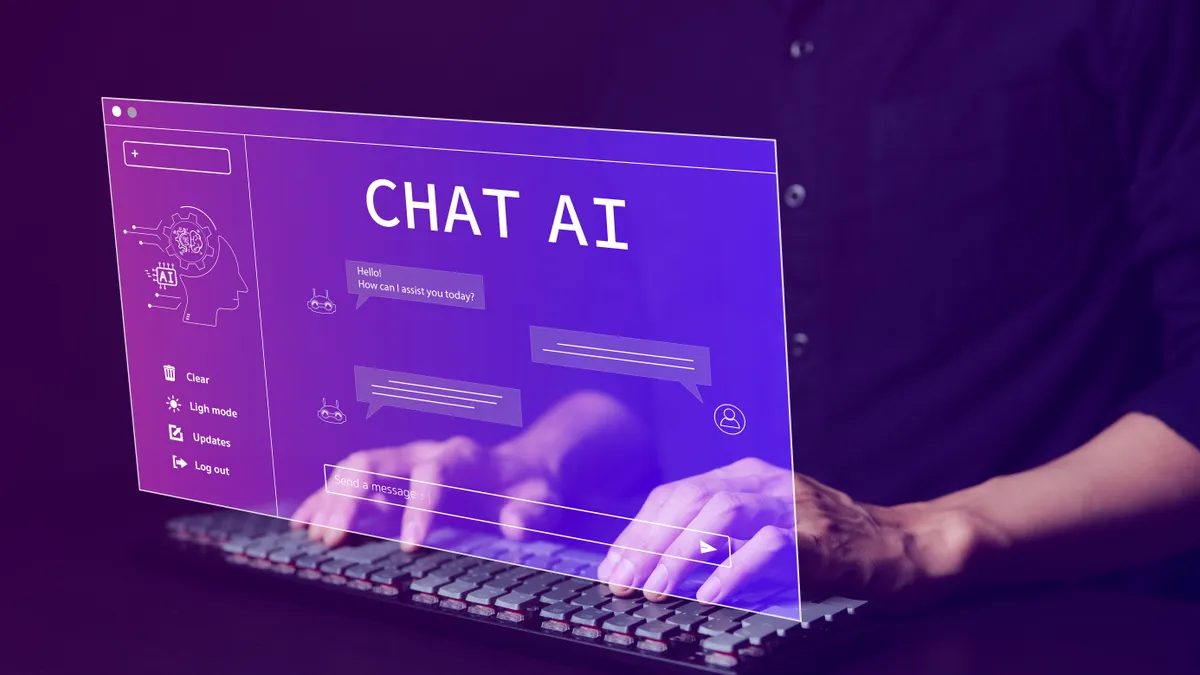Dive Brief:
- Nearly three in four lawyers (73%) say they plan to utilize generative AI in their legal work within the next year, according to a recent Wolters Kluwer report.
- The planned integration of emerging artificial intelligence comes as 68% of those legal professionals feel prepared for the technology’s impact, and 73% say they understand how the latest AI can be applied to their work.
- “Those who are most likely to integrate GenAI into their legal work over the next year plan to use it for reviewing and analyzing legal documents, performing basic tasks, and sifting through electronic data,” the 2023 Future Ready Lawyer Report says. The report’s findings stem from a survey of 700 lawyers in corporate legal departments and law firms across the U.S. and nine European countries.
Dive Insight:
The survey results highlighted in the Wolters Kluwer report reflect how quickly generative AI tools such as ChatGPT have made inroads in the legal industry.
While legal professionals have often lagged behind their peers in other sectors when it comes to technology adoption, that is not the case with emerging artificial intelligence that can quickly produce content in response to user prompts.
However, there remains some trepidation about the latest AI, with 25% of survey respondents seeing it as a threat and another 26% seeing it as both a threat and an opportunity.
Areas of generative AI concern include the technology’s “lack of authority, inconsistency, lack of explainability, and potential bias,” according to the report.
On the other hand, 43% of survey respondents see generative AI as an opportunity.
Those excited about the technology highlight how it can boost efficiency and produce more comprehensive insights. The efficiency gains can come from automating certain repetitive tasks such as contract drafting and document reviews.
Along those lines, 85% of law firm lawyers and 84% of in-house lawyers say they expect to make greater use of technology to improve productivity.
In the next three years, 77% of attorneys expect generative AI to impact the areas of big data and predictive analytics.
“Some lawyers commented that these tools are becoming increasingly significant in their daily work, as legal AI solutions are able to quickly handle large volumes of data and analyze complicated legal issues,” the report says.
Training
Technology training is also desired by both in-house and law firm lawyers.
Roughly 92% say it’s important for them to get training and support so they can use technology solutions to their full potential.
However, 78% of survey respondents say their organizations are equipped to help professionals develop the skills needed to leverage technology.
Additionally, 36% of lawyers say a lack of knowledge is a barrier to adopting technology, though that is down from 48% a year ago.
Law firm evaluations
Meanwhile, corporate legal departments report they are examining how their outside law firms use technology as part of the evaluation process.
When deciding whether to switch firms, 35% of legal departments consider whether a firm equips its staff with the right tools to perform their work.
In turn, nearly half of law firms (46%) report that using technology to improve productivity and efficiency is a top need to meet client demands.
“It’s clear that implementing technology is critical for meeting clients’ escalating expectations for efficiency and productivity, and helps to retain their business in an era of growing attrition,” the Wolters Kluwer report says.











